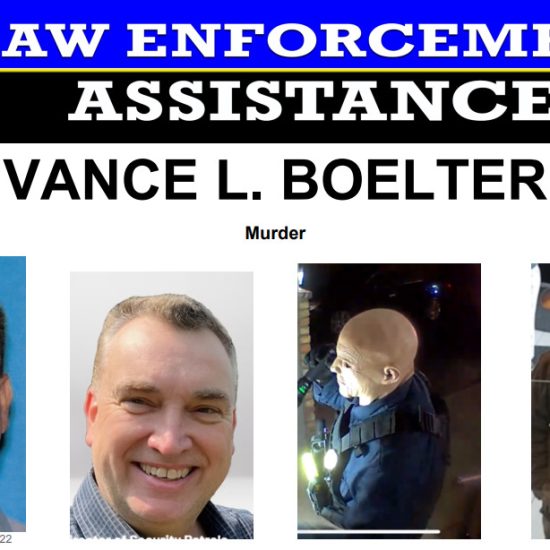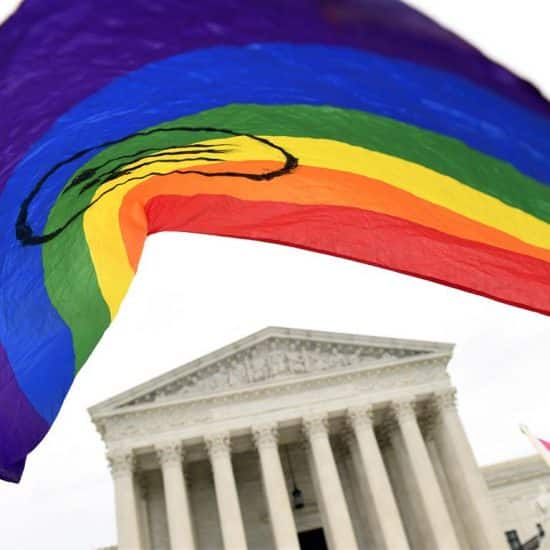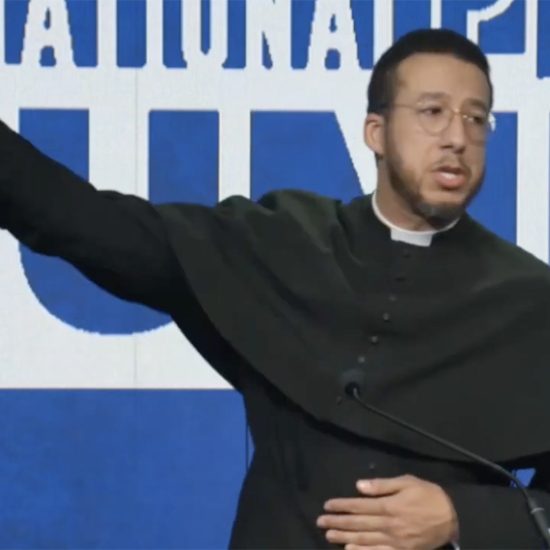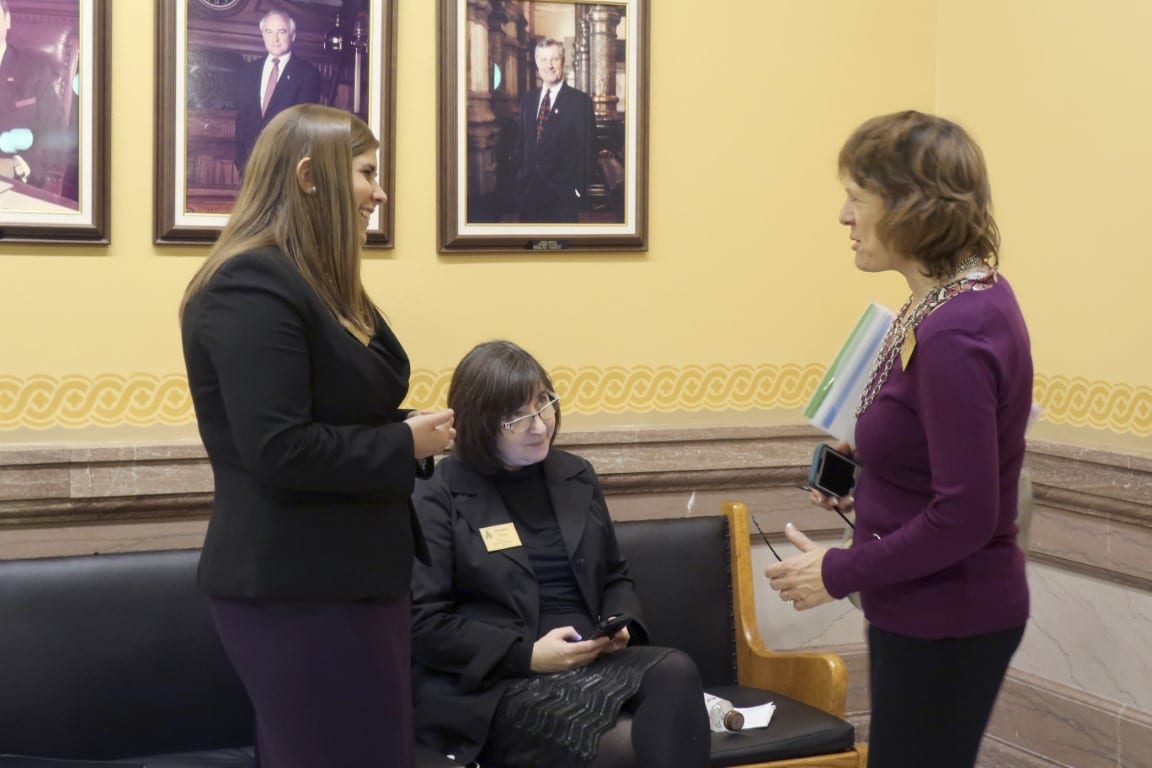
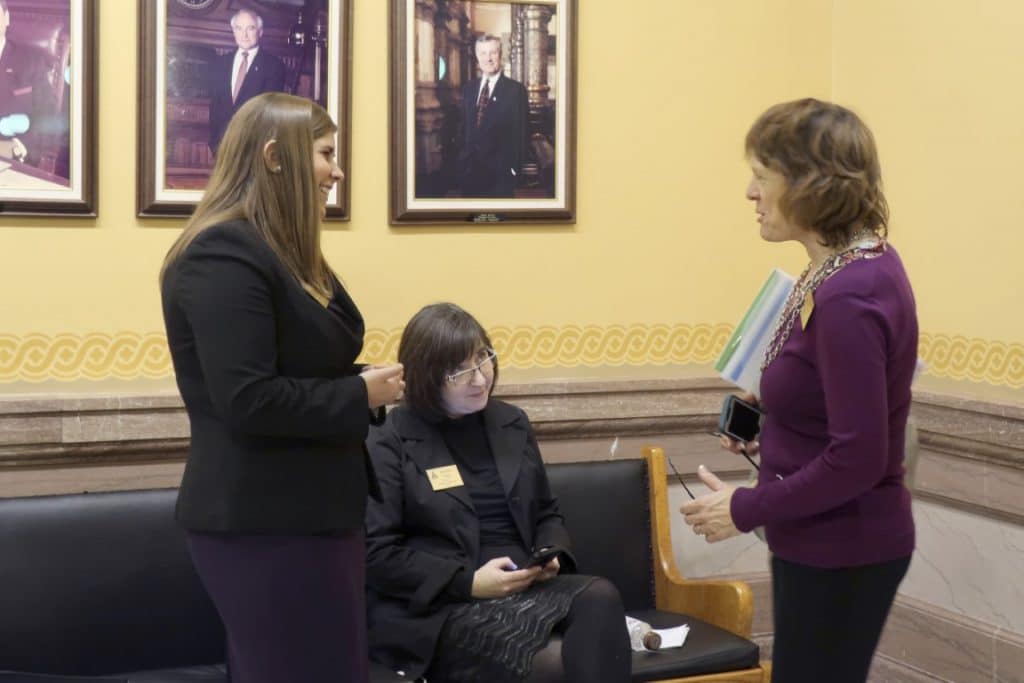
Anti-abortion lobbyists from left, Brittany Jones, of the Family Policy Alliance of Kansas; Jeannette Pryor, of the Kansas Catholic Conference, and Jeanne Gawdun, of Kansans for Life, confer outside the state Senate chamber ahead of a debate on a proposed constitutional amendment on abortion, Wednesday, Jan. 29. 2020, at the Statehouse in Topeka, Kansas. The amendment would overturn a Kansas Supreme Court decision protecting abortion rights. (AP Photo/John Hanna)
TOPEKA, Kan. (AP) — Abortion opponents who’ve become used to giving orders to Kansas lawmakers on the exact wording of new restrictions are stymied now that they face compromising to get a proposed anti-abortion amendment to the state constitution on the ballot.
After falling short in a House vote three weeks ago, abortion opponents have pressured a dozen members who voted no, moderate Republicans and Democrats who are Catholic or who represent relatively conservative or heavily Catholic districts. Those lawmakers have been flooded with emails and mail in their districts, and abortion foes are blocking a bipartisan plan the lawmakers generally favor to expand the state’s Medicaid program.
But those tactics aren’t working yet. The targeted lawmakers appeared as dug-in as ever at the halfway point of the Legislature’s annual session.
Kansans for Life, the state’s most influential anti-abortion group and a GOP power-broker, has for years told lawmakers what proposals to pursue and has watched them approve the group’s language and echo its talking points. The group and its allies remain reluctant to cut a deal to get the two-thirds majority needed on the anti-abortion amendment and may not quite know how to close one — having not had to compromise to get other measures through the Republican-controlled Legislature when a simple majority sufficed.
“They’ve never been in this position where they didn’t get exactly what they wanted,” said Senate Majority Leader Jim Denning, a Kansas City-area Republican who supports the amendment and helped draft the Medicaid plan. “It’s something you have to learn on the fly in this business.”
Anti-abortion groups’ measure would overturn a Kansas Supreme Court decision last year that declared access to abortion a “fundamental” right under the state’s Bill of Rights. They want to put it to a statewide vote in the August primary, when the smaller electorate skews conservative and the measure is more likely to pass.
If supporters can get the two-thirds majorities in both chambers they need to put the proposed amendment on a ballot, approval by a simple majority of voters would change the state constitution. Republicans have that supermajority in both chambers and the measure passed the Senate in January.
But in the House, it fell four votes shy of the 84 of 125 votes needed. No Democrats supported it, and four Republicans voted no.
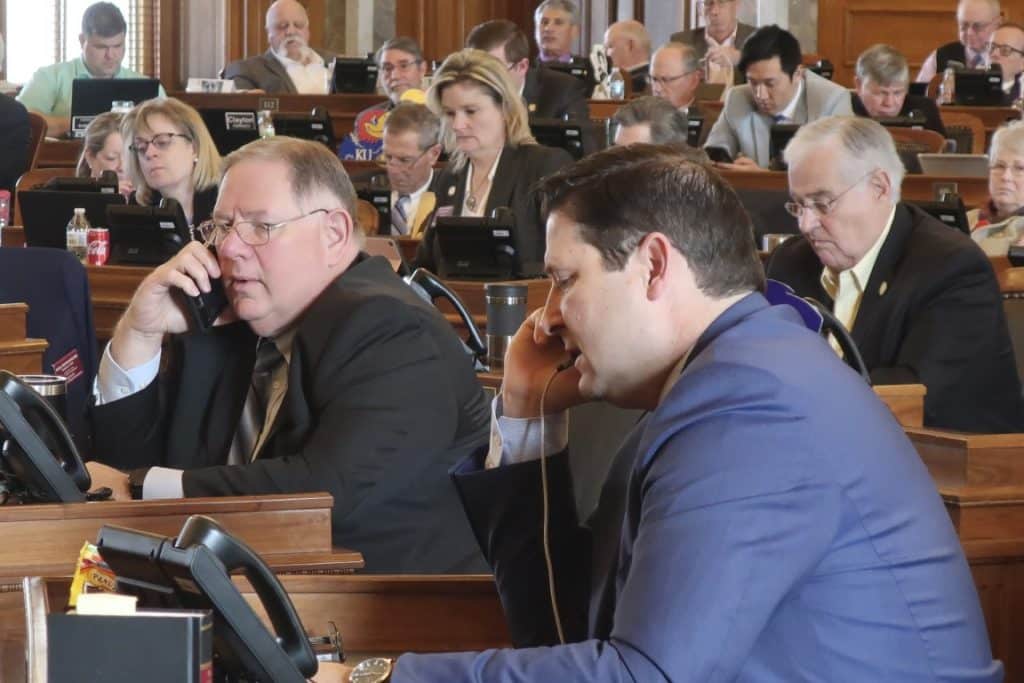
Kansas House Majority Leader Dan Hawkins, center left, R-Wichita, and House Speaker Ron Ryckman Jr., center right, R-Olathe, work the phones during a House vote on a proposed amendment to the state constitution on abortion, Friday, Feb. 7, 2020, at the Statehouse in Topeka, Kansas. Hawkins and Ryckman were trying to round up the final votes needed to pass the proposed amendment, which overturns a Kansas Supreme Court decision declaring access to abortion a “fundamental” right under the state’s Bill of Rights. (AP Photo/John Hanna)
The measure would declare that the state constitution does not “secure” a right to abortion and would allow legislators to restrict it even in cases of rape or incest or when a woman’s life is in danger. Critics contend the amendment would lead to a ban if the U.S. Supreme Court overturned its historic 1973 Roe v. Wade decision legalizing abortion across the nation.
But Brittany Jones, advocacy director for the anti-abortion Family Policy Alliance of Kansas, called the measure “a carefully crafted legal document” to restore legislators’ traditional power to regulate abortion.
“We think we drew that very fine line of crafting very precise language,” she said.
Anti-abortion groups fear that without the amendment, state courts will overturn a raft of restrictions enacted over the past two decades or even order state funding of elective abortions. They treat the threat as inevitable — and imminent.
They also argue that the proposed amendment would get lost on the November ballot, with the presidential election.
Kansans for Life lobbyist Jeanne Gawdun compared lawmakers’ willingness to defer to her group to their willingness to follow trade groups’ advice on agricultural policy.
“This is the area where we have expertise,” she said. “We are always willing to share that with the legislators, and they trust us.”
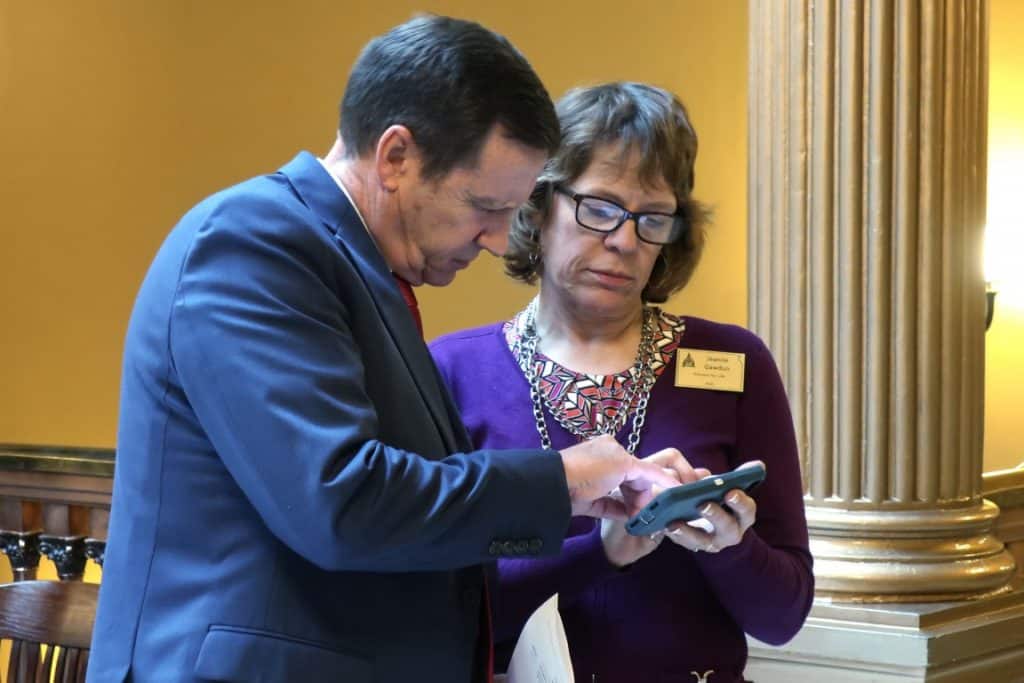
Kansas state Sen. Dennis Pyle, left, R-Hiawatha, consults with Jeanne Gawdun, right, a Kansans for Life lobbyist, following a meeting of GOP senators about a proposed amendment to the state constitution on abortion, Wednesday, Jan. 29, 2020, at the Statehouse in Topeka, Kan. The amendment would overturn a Kansas Supreme Court decision protecting abortion rights, and critics say it could lead eventually to a ban on abortion. (AP Photo/John Hanna)
State Sen. David Haley, a Kansas City Democrat and vocal abortion rights supporter, said he’s not sure why the amendment’s backers would seek compromise.
“They’re close enough now to feel like it’s within striking range,” he said.
House Speaker Ron Ryckman Jr., a Kansas City-area Republican, said he is willing to discuss potential changes in the proposed amendment but wants people seeking them to commit to voting yes. Jones said she’s waiting for lawmakers who’ve voted no to come forward with suggestions because, “I’m not going to negotiate with myself.”
But targeted lawmakers said they’re seeing intransigence from the amendment’s supporters.
“They come at you with a very hard line, and that doesn’t lend itself to compromise at all,” said Rep. Jan Kessinger, a Kansas City-area Republican.
Rep. Jeff Pittman, a Kansas City-area Democrat, said he’s been rebuffed in asking that the amendment be revised to guarantee explicitly that lawmakers couldn’t ban abortion in cases of rape or incest or when a woman’s life is in danger.
“There’s a mentality that however they want the language to be is the way it will be,” he said.
And some lawmakers want to put the proposed amendment on the ballot in November, when turnout is certain to be higher.
Three Republicans voting no said that is their issue. Democratic Rep. Kathy Wolfe Moore, of Kansas City, said in her area, one of the state’s few Democratic strongholds, there may be no primary races to bring out voters.
“I am fine with it going on the ballot and I’m fine with submitting it to the will of the citizens. I just think it needs to be in an election where people will actually turn out,” she said. “I would be more than happy to vote for a constitutional amendment with some changes.”




